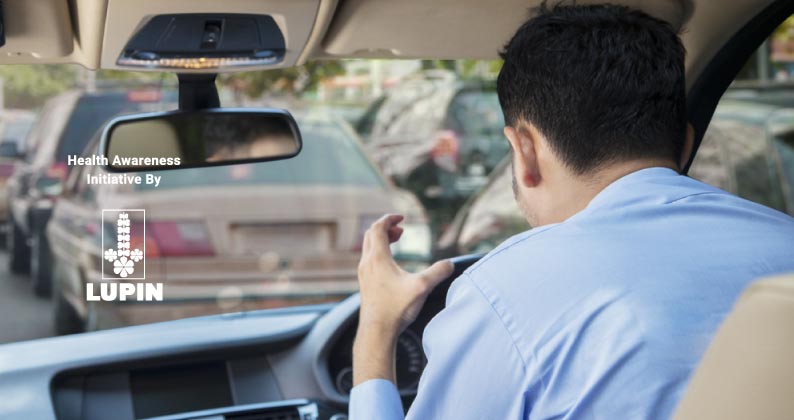Stress, Anxiety, Pollution: How Traffic Jam Affects Your Health!
By Dr. Nikita Toshi +2 more

Get insightful and
helpful tips to treat
your symptoms for FREE



Download PharmEasy App




Register to Avail the Offer
Send OTPBy continuing, you agree with our Privacy Policy and Terms and Conditions



By Dr. Nikita Toshi +2 more
Table of Contents
Traffic congestion is a significant issue in urban areas. Traffic noise and traffic-related air pollutants co-exist in the traffic environment. Polluted air from road transport vehicles contributes significantly to air quality problems through vehicle emissions, which have various harmful impacts on public health.
Traffic and its allied effects can have various adverse health consequences. There is evidence which has confirmed that exposure to traffic noise significantly increases the risk for heart-related diseases, such as high blood pressure, heart attacks, etc. Also, traffic noise can induce adverse effects on the nervous system, leading to the increasing levels of anxiety, irritation, and sleeplessness.

Twofold higher risk of Type 2 diabetes is also observed for people exposed to intense traffic. Long-term exposure to particulate matter increases type two diabetes risk in the general population, as does living close to a major road. Also, particulate matter and the increase in oxidative stress have ill-effects on the respiratory system. Besides, traffic noise is significantly associated with adverse pregnancy outcomes and can affect the hormonal and digestive system.
The public health effects of traffic during congestion are associated with early deaths. Road traffic noise also has been shown to increase the short-term risk of death from specific diseases of the cardiovascular, respiratory, and hormonal systems.
Moreover, people who live in areas with a higher vehicular burden and face most traffic stress also have the lower health status and higher depressive symptoms that people living in areas with less traffic. These findings suggest that traffic stress may represent an important factor that influences the well-being of urban populations.
Interestingly, studies have also shown that the level of blood adrenaline hormone increases in heavy-traffic compared with during low-traffic conditions. Also, the ability to estimate distance and recognition is reduced due to high-traffic compared to during low-traffic conditions. The increase of the adrenaline during driving on heavy-traffic days can lead to stress because ones accuracy and judgment may be reduced.
Also Read: 10 effects of stress on the body
A traffic jam means more vehicular emissions and more pollutants inundating the air. This slowly degrades the quality of air and affects all those who sit for hours at the end amidst traffic congestion. Hence one may say that traffic jams significantly increase air pollution.
An interesting thing to note is that the pollution gathered inside the cars in traffic jams is far higher than that around the cars moving outside. Some of the dangerous and long-lasting effects of traffic jam-induced air pollution are
Also Read: Essential Oils for Congestion: A Research-Based Guide for Relief
Since we cannot avoid the commute, we need to work around it and make the trip an enjoyable one or at least less stressful.
Such small changes in our daily life may help considerably in dealing with the ill-effects and the adverse health effects of traffic jam on our physical and mental well-being.
Disclaimer: The information provided here is for educational/awareness purposes only and is not intended to be a substitute for medical treatment by a healthcare professional and should not be relied upon to diagnose or treat any medical condition. The reader should consult a registered medical practitioner to determine the appropriateness of the information and before consuming any medication. PharmEasy does not provide any guarantee or warranty (express or implied) regarding the accuracy, adequacy, completeness, legality, reliability or usefulness of the information; and disclaims any liability arising thereof.
Links and product recommendations in the information provided here are advertisements of third-party products available on the website. PharmEasy does not make any representation on the accuracy or suitability of such products/services. Advertisements do not influence the editorial decisions or content. The information in this blog is subject to change without notice. The authors and administrators reserve the right to modify, add, or remove content without notification. It is your responsibility to review this disclaimer regularly for any changes.

Leave your comment...
Comments